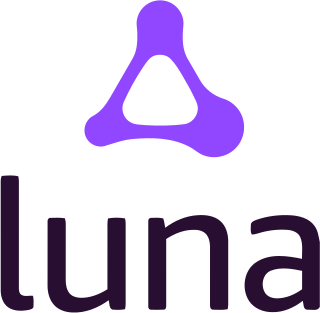
Steam is a video game digital distribution service and storefront developed by Valve Corporation. It was launched as a software client in September 2003 to provide game updates automatically for Valve's games, and expanded to distributing third-party titles in late 2005. Steam offers various features, like game server matchmaking with Valve Anti-Cheat measures, social networking, and game streaming services. Steam client's functions include game update automation, cloud storage for game progress, and community features such as direct messaging, in-game overlay functions and a virtual collectable marketplace.
In computers, lag is delay (latency) between the action of the user (input) and the reaction of the server supporting the task, which has to be sent back to the client.

OnLive was a provider of cloud virtualization technologies based in Mountain View, California. OnLive's flagship product was its cloud gaming service, which allowed subscribers to rent or demo computer games without installing them. Games were delivered as streaming video rendered by the service's servers, rather than running on the local device. This setup allowed the games to run on computers and devices that would normally be unable to run them due to insufficient hardware. OnLive also enabled other features such as the ability for players to record gameplay and to spectate.
Maingear is an American privately held computer manufacturer headquartered in Warren, New Jersey. The company builds, designs, and supports custom desktops, gaming computers, customizable laptops, and workstations in the United States.
UltraViolet was a cloud-based digital rights locker for films and television programs that allowed consumers to store proofs-of-purchase of licensed content in an account to enable playback on different devices using multiple applications from several different streaming services. UltraViolet also allowed users to share access to their library with up to five additional people. UltraViolet was deployed by the Digital Entertainment Content Ecosystem (DECE), an alliance of 85 companies that included film studios, retailers, consumer electronics manufacturers, cable television companies, internet service providers (ISPs), internet hosting vendors, and other systems and security vendors, with the notable exceptions of Walt Disney Studios, Google, Amazon and Apple.
Cloud gaming, sometimes called gaming on demand or game streaming, is a type of online gaming that runs video games on remote servers and streams the game's output directly to a user's device, or more colloquially, playing a game remotely from a cloud. It contrasts with traditional means of gaming, wherein a game is run locally on a user's video game console, personal computer, or mobile device.
EA Israel, formerly GameFly Streaming and Playcast Media Systems, is a cloud gaming service company, based in Caesarea, Israel. In June 2015, Playcast merged with rival cloud gaming company GameFly. Playcast was backed by Venture Capital firms Jerusalem Venture Partners (JVP) and MK Capital. EA acquired the company in 2018.

Peek Inc. was a mobile technology company founded in 2007 and headquartered in New York City. From 2008 to 2012, it offered a series of mobile handheld devices which gave access to email and various social networks.

BlueStacks is an American technology company recognized for its creation of the BlueStacks App Player and other cloud-based cross-platform products. The BlueStacks App Player enables the execution of Android applications on computers running Microsoft Windows or macOS. The company's establishment traces back to 2009, founded by Jay Vaishnav, Suman Saraf, and Rosen Sharma.
Input lag or input latency is the amount of time that passes between sending an electrical signal and the occurrence of a corresponding action.

Xbox is a video gaming brand that consists of five home video game consoles, as well as applications (games), streaming service Xbox Cloud Gaming, and online services such as the Xbox network and Xbox Game Pass. The brand is produced by Microsoft Gaming, a division of Microsoft.

Steam Machine is a discontinued series of small form factor gaming computers by Valve, designed to operate SteamOS to provide a game console-like experience. Several computer vendors were engaged with Valve to develop their own versions of Steam Machines for retail, offering additional options atop Valve's requirements such as dual-booting options with Microsoft Windows and the ability to upgrade the computer. Consumers could digitally purchase video games on their Steam Machine through Valve's namesake Steam storefront.

GPUOpen is a middleware software suite originally developed by AMD's Radeon Technologies Group that offers advanced visual effects for computer games. It was released in 2016. GPUOpen serves as an alternative to, and a direct competitor of Nvidia GameWorks. GPUOpen is similar to GameWorks in that it encompasses several different graphics technologies as its main components that were previously independent and separate from one another. However, GPUOpen is partially open source software, unlike GameWorks which is proprietary and closed.
PCGamesN is a British online video game magazine focusing on PC gaming and hardware. It has a full-time team of over a dozen writers and is the oldest owned-and-operated site within publishing group Network N.
GeForce Now is the brand used by Nvidia for its cloud gaming service. The Nvidia Shield version of GeForce Now, formerly known as Nvidia Grid, launched in beta in 2013, with Nvidia officially unveiling its name on September 30, 2015. The subscription service provided users with unlimited access to a library of games hosted on Nvidia servers for the life of the subscription, being delivered to subscribers through streaming video. Certain titles were also available via a "Buy & Play" model. This version was discontinued in 2019, and transitioned to a new version of the service that enabled Shield users to play their own games.
Game Pass is a subscription service as part of Xbox and offered by Microsoft Gaming. Launched on June 1, 2017, the service allows users to download and play video games for Xbox video game consoles or Microsoft Windows PCs from a rotating library, with the games remaining accessible as long as the user has an active subscription. Game Pass subscribers also receive discounts on purchases of games from the service's library and their respective downloadable content (DLC).

The Atari VCS is a home video game console produced by Atari, Inc. While its exterior encasing design is intended to pay homage to the Atari 2600, the new Atari VCS plays modern games and streaming entertainment via a Linux-based operating system called AtariOS that will allow users to download and install other compatible games, including those compatible with Windows 10. The system shares a name with Atari, Inc.'s 1977 Video Computer System, usually shortened to VCS, which was renamed to the Atari 2600 in late 1982.

Stadia was a cloud gaming service developed and operated by Google. Known in development as Project Stream, the service debuted through a closed beta in October 2018, and publicly launched in November 2019. Stadia was accessible through Chromecast Ultra and Android TV devices, on personal computers via the Google Chrome web browser and other Chromium-based browsers, Chromebooks and tablets running ChromeOS, and the Stadia mobile app on supported Android devices. There was also an experimental mode with support for all Android devices that were capable of installing the Stadia mobile app. In December 2020, Google released an iOS browser-based progressive web application for Stadia, enabling gameplay in the Safari browser.

Xbox Cloud Gaming is a cloud gaming service as part of Xbox offered by Microsoft Gaming. Initially released in beta testing in November 2019, the service later launched for subscribers of Xbox Game Pass Ultimate on September 15, 2020. Xbox Game Pass cloud gaming is provided to subscribers of Ultimate at no additional cost. Xbox Cloud Gaming operates by linking the device to a remote server in the cloud.

Amazon Luna is a cloud gaming platform developed and operated by Amazon. Available only in the United States, United Kingdom, Canada, Germany, France, Italy, and Spain, the platform is powered by Amazon Web Services, has integration with Twitch, and is available on Windows, Mac, Amazon Fire TV, iOS as well as Android. Luna offers access to a selection of games via the Luna+ subscription as well as to channels from brands such as Ubisoft+ and Jackbox Games.










